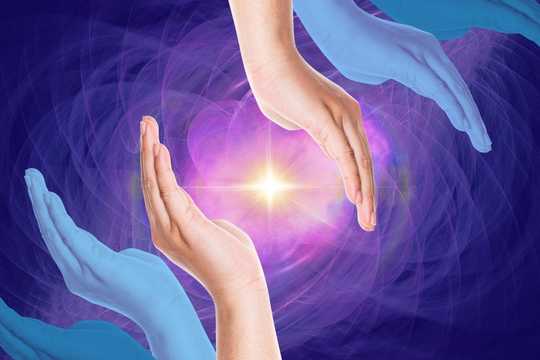The psychedelic community is growing every day. Some have been preaching their benefits for many decades. Others are just dipping their feet in. The Psychedelic Support team is thrilled there are more people excited about the therapeutic and life-changing potential of psychedelics than there have ever been.
“Despite two decades of dormancy (mid-1970s to mid-1990s) and two decades in which professional acceptance for the few scientists involved was questionable…mainstream scientific and societal acceptance of human psychedelic research seems it might be finally taking off.”
— Matthew W. Johnson, Johns Hopkins University School of Medicine, Baltimore, MD, USA
However, there are the laggards who won’t “drink the Kool-aid.” They still believe psychedelics are associated with hippies and counterculture, a phase that won’t last. Well, it’s 2024! If you have a friend who thinks psychedelics are hype, here are 18 articles published by reputable and trusted sources to share with them.
American Psychological Association (APA)
The American Psychological Association (APA) is the largest professional organization of psychologists in the United States and a leading authority in psychology. It was founded in 1892 and is dedicated to advancing psychological knowledge, research, education, and practice to benefit society and improve people’s lives.
The APA has more than 157,000 researchers, educators, clinicians, consultants, and students as its members, ensuring that extensive professional expertise and research back its publications.
By promoting scientific, peer-reviewed studies, the organization ensures that the basis for their content is credible, rigorously tested data. The APA plays a major role in shaping mental health policies, standards of care, and psychological education. Their guidelines are widely used in therapy, education, and research, making their input critical for professionals and the public.
The APA’s publications provide a trustworthy source grounded in science and ethical practice for anyone seeking reliable, well-researched information on mental health, behavior, and therapy. Here are three APA articles about psychedelics:
1. The Emergence of Psychedelics as Medicine
This 2024 article looks at the potential of psychedelics as medicine, including MDMA, ketamine, and psilocybin. It discusses how they can help people with treatment-resistant mental health conditions.
2. APA Position Statement on the Use of Psychedelic and Empathogenic Agents for Mental Health Conditions
The APA Board of Trustees approved and published this policy document in July 2022. It discusses its position on psychedelic research and therapeutic discoveries.
“APA supports continued research and therapeutic discovery into psychedelic agents with the same scientific integrity and regulatory standards applied to other promising therapies in medicine.”
3. How Psychologists are Studying Psychedelics as Potential Treatments for Addiction, Other Disorders
This 10-minute read discusses how researchers are investigating psilocybin and other psychedelic drugs as potential treatments for conditions like depression and substance use disorders.
Specifically, the article mentions that psilocybin-assisted therapy can induce mystical experiences that lead participants to alter their worldviews and gain a new sense of self.
Johns Hopkins Center for Psychedelic and Consciousness Research
The Johns Hopkins Center for Psychedelic and Consciousness Research is the largest psychedelic research science center in the world. Established in 2000, the center is part of Johns Hopkins University, a globally recognized research institution. The Center focuses on exploring how clinicians can use psychedelics to treat mental health conditions such as depression, anxiety, addiction, and PTSD.
The Center has been at the forefront of modern psychedelic research and has conducted groundbreaking studies on the therapeutic effects of psilocybin, helping to bring renewed scientific legitimacy to the field. The research conducted at Johns Hopkins follows strict scientific protocols, including randomized, placebo-controlled trials, ensuring that researchers base their findings on solid, credible evidence.
The Center’s work is widely respected in the scientific and medical communities, making it a reliable source for information on the therapeutic use and potential of psychedelics.
Here is a small sample of their academic publications:
4. Mind the Psychedelic Hype: Characterizing the Risks and Benefits of Psychedelics for Depression
This 2024 article reviews the current state of psychedelic research on treating depression, therapeutic outcomes, the risk of bias, and the prevalence of adverse effects.
The researchers “aim to cut through the misinformation about the benefits, risks, and future prospects of psychedelic treatments.”
5. Psychiatry Might Need Some Psychedelic Therapy
This 2018 editorial discusses the history of psychedelic research. It delves into the challenges that psychiatry and modern society face, including treatment-resistant depression, opioid addiction fatalities, tobacco addiction, and epidemic rates of suicide.
The author addresses the skepticism that clinicians and researchers have about psychedelic therapy and discusses why now is the time for a well-needed resurgence.
“Despite two decades of dormancy (mid-1970s to mid-1990s) and two decades in which professional acceptance for the few scientists involved was questionable, and the prospect of governmental funding of therapeutic studies seemed a pipe dream (mid-1990s–recently), mainstream scientific and societal acceptance of human psychedelic research seems it might be finally taking off.”
6. Attitudes and Beliefs About the Therapeutic Use of Psychedelic Drugs Among Psychologists in the United States
A 2021 study administered a cross-sectional quasi-experimental electronic survey study to 366 clinical psychologists in the US to understand the perspectives and beliefs about psychedelic treatments.
“Given their sensitivity to and experience working with mental health issues, we believe psychologists are uniquely qualified to support clients in processing or integrating psychedelic experiences and to encourage vital harm reduction practices, as well as helping to guide the ethical implementation of these treatments into clinical and research settings.”
Follow your Curiosity
Sign up to receive our free psychedelic courses, 45 page eBook, and special offers delivered to your inbox.7. Open-Label Study of Consecutive Ibogaine and 5-MeO-DMT Assisted-Therapy for Trauma-Exposed Male Special Operations Forces Veterans: Prospective Data from a Clinical Program In Mexico
This 2023 study examined the effectiveness of psychedelic-assisted therapy among trauma-exposed Special Operations Forces Veterans (SOFV) seeking treatment for cognitive and mental health problems in Mexico.
“Data suggest combined ibogaine, and 5-MeO-DMT assisted therapy has potential to provide rapid and robust changes in mental health functioning with a signal of durable therapeutic effects up to 6 months. Future research in controlled settings is warranted.”
Stanford Psychedelic Science Group
The Stanford Psychedelic Science Group (SPSG) is an interdisciplinary organization based at Stanford University, focused on exploring the scientific understanding and therapeutic potential of psychedelics.
This group brings together researchers, clinicians, and students from various fields — such as psychology, psychiatry, neuroscience, and medicine — to study how they might use psychedelics to treat mental health conditions and expand knowledge about human consciousness.
8. Why Psychedelics? Why Now?
The SPSG published their response to explain why they dedicate themselves to studying psychedelics. It discusses how the renewed interest in psychedelic research is happening alongside a significant rise in untreated and difficult-to-treat mental illness in the U.S. and globally.
“Classical psychedelics have yet to be approved for the treatment of any illness in the United States and are presently illegal (designated as ‘Schedule 1’ substances by the DEA). However, preliminary data suggests that psychedelic-assisted treatments may be effective for some of our most prevalent, debilitating, and fatal conditions. If ongoing research continues to show efficacy, there may be a public health imperative to advance our understanding and application of these treatments.”
The SPSG outlines key mental health conditions, including depression and anxiety, PTSD, and substance use disorder, with evidence suggesting potential benefits from psychedelic-assisted therapies.
Multidisciplinary Association for Psychedelic Studies (MAPS)
The Multidisciplinary Association for Psychedelic Studies (MAPS) is a nonprofit research and educational organization founded in 1986. It focuses on developing medical, legal, and cultural frameworks for the safe use of psychedelics, particularly in therapeutic settings.
MAPS has been a trailblazer in the field of psychedelic science for decades, conducting some of the first modern clinical trials that have demonstrated the therapeutic potential of MDMA for PTSD and other psychedelics.
MAPS’ longstanding dedication to advancing the science of psychedelics through rigorous, ethical research has made it one of the most trusted sources for information on the therapeutic potential of these substances.
9. MDMA /// Beyond Ecstasy Report (Government of the Netherlands)
The Government of the Netherlands released a 2024 State Commission report on MDMA. The report aims to map out the “historical, legal, policy-related, public health science and therapeutic aspects of MDMA.”
The State Commission references the work of MAPS throughout and includes specific examples of how they informed their report. On page 205, the State Commission describes recommendations to the professional associations:
“The professional associations must draw up guidelines for the treatment of PTSD using MDMA-AT. The working method used during the MAPS studies must be adhered to as much as possible. MDMA-assisted treatment comprised of MDMA sessions supervised by two accredited therapists and closely matched integrative therapy will always be preferable to treatment lacking these elements.”
Dive Deeper into the Landscape of Psychedelics: Further Readings and Resources
- Understand the Risks of Self-Medicating Alone with Psychedelics
- Learn More About the Touted Effects of Microdosing: Myth, Magic, or a Molecular Mechanism?
- Explore How Psychedelics Help Neurons Grow: Mental Health Disorders & Neuroplasticity
- Find Out Why MDMA & Other Psychedelic Therapies May NOT Work for You (Part 1 of 2)
- Is the Psilocybin Community in an Information Bubble? Read More Here
Other Articles
Here are some other articles that are easier to read and still evidence-based:
10. What Psychedelics Can Teach Us About Human Connection
The Greater Good Science Center interviewed Sonja Lyubomirsky, a professor of psychology at the University of California studying MDMA. She speaks about how MDMA may help with improving loneliness and increasing social connection.
11. Back to the Future: Psychedelic Drugs in Psychiatry
Dr. Peter Grinspoon, a primary care physician, shares with Harvard Health Publishing how psychedelics work, whether there is evidence, the pros and cons, and his thoughts on how the future of psychedelic therapy will unfold.
12. Why Psychedelics Are Therapy’s Next Frontier
Psychology Today published three pieces on what the psychedelic experience feels like, what these substances do to the brain, and where they can take us.
13. Nearly Half of Americans Support Legalization of Psychedelics for Mental Health
In October 2022, VeryWell Mind released the results of their Psychedelics & Mental Health survey to understand Americans’ awareness and opinions of psychedelics for mental health treatment.
Over 1,800 American adults responded, and 45% said they’d support the legalization of at least some psychedelics for the treatment of a mental health condition under the supervision of a professional.
Psychedelic Support Articles
Last but not least, the Psychedelic Support team has written hundreds of science-backed, evidence-based articles that are completely free to access and read. Here are five to share with your stubborn friend:
14. Learn More About How MAPS Paved the Way to Legal MDMA Therapy
15. Find Out How American Psychiatrists View Psychedelics
16. Understand the Science Behind How Psychedelic Therapy Disrupts Neurobiological Trauma
17. Explore The Risks of Psychedelic Experiences: Myths and Facts
18. Discover How We Can Quantify the Placebo Effect in Psychedelic Medicine
It’s understandable for someone to be skeptical about psychedelics’ potential to improve mental health, especially given the long history of stigma surrounding these substances.
However, recent research is revealing that psychedelics, when used in controlled, therapeutic settings, have shown promising results for conditions like depression, PTSD, and anxiety. These are often treatment-resistant or difficult to manage with conventional methods.
While psychedelics are not a magic solution for everyone, the early data from clinical trials is compelling enough that they deserve a fair and scientifically rigorous exploration.
Just as we once had doubts about other medications that are now widely used in mental health care, it may be worth considering the possibility that psychedelics could play a valuable role in treatment for people who have exhausted other options. Research is still ongoing, but it’s grounded in evidence-based science, which means if they are proven effective, it will be with the same scrutiny that we apply to any other medical treatment.
References
Alpert, J. E., McDonald, W. M., Nemeroff, C. B., & Rodriquez, C. (2022). Position Statement on the Use of Psychedelic and Empathogenic Agents for Mental Health Conditions. https://www.psychiatry.org/getattachment/d5c13619-ca1f-491f-a7a8-b7141c800904/Position-Use-of-Psychedelic-Empathogenic-Agents.pdf.
American Psychological Association. (2008). APA History. American Psychological Association. https://www.apa.org/about/apa/archives/apa-history.
Davis, A. K., Agin-Liebes, G., España, M., Pilecki, B., & Luoma, J. (2021). Attitudes and Beliefs About the Therapeutic Use of Psychedelic Drugs Among Psychologists in the United States. Journal of Psychoactive Drugs, 54(4), 309–318. https://doi.org/10.1080/02791072.2021.1971343.
Davis, A. K., Xin, Y., Sepeda, N., & Averill, L. A. (2023). Open-Label Study of Consecutive Ibogaine and 5-MeO-DMT Assisted-Therapy for Trauma-Exposed Male Special Operations Forces Veterans: Prospective Data from a Clinical Program in Mexico. American Journal of Drug and Alcohol Abuse, 49(5), 587–596. https://doi.org/10.1080/00952990.2023.2220874.
Ekman, E. (2023, January 23). What Psychedelics Can Teach Us About Human Connection. Greater Good Magazine. https://greatergood.berkeley.edu/article/item/what_psychedelics_can_teach_us_about_human_connection.
Government of the Netherlands. (2024). MDMA /// Beyond Ecstasy. Government of the Netherlands. https://www.government.nl/documents/reports/2024/05/31/mdma-beyond-ecstasy.
Grinspoon, P. (2021, June 22). Back to the Future: Psychedelic Drugs in Psychiatry. Harvard Health. https://www.health.harvard.edu/blog/back-to-the-future-psychedelic-drugs-in-psychiatry-202106222508.
Ingalls, N. (2022, October 26). Nearly Half of Americans Support Legalization of Psychedelics for Mental Health. Verywell Mind. https://www.verywellmind.com/psychedelics-and-mental-health-survey-6753410.
Johnson, M. W. (2018). Psychiatry Might Need Some Psychedelic Therapy. International Review of Psychiatry, 30(4), 285–290. https://doi.org/10.1080/09540261.2018.1509544.
Meling, D., Ehrenkranz, R., Nayak, S. M., Aicher, H. D., Funk, X., van Elk, M., Graziosi, M., Bauer, P. R., Scheidegger, M., & Yaden, D. B. (2024). Mind the Psychedelic Hype: Characterizing the Risks and Benefits of Psychedelics for Depression. Psychoactives, 3(2), 215–234. https://doi.org/10.3390/psychoactives3020014.
Psychology Today Contributors. (2023, January 8). Why Psychedelics Are Therapy’s Next Frontier. Psychology Today. https://www.psychologytoday.com/ca/articles/202301/why-psychedelics-are-therapys-next-frontier.
Stringer, H. (2024, June 1). The Emergence of Psychedelics as Medicine. American Psychological Association. https://www.apa.org/monitor/2024/06/psychedelics-as-medicine.
Weir, K. (2020, March 2020). How Psychologists Are Studying Psychedelics As Potential Treatments for Addiction, Other Disorders. American Psychological Association. https://www.apa.org/monitor/2020/03/cover-trip.






